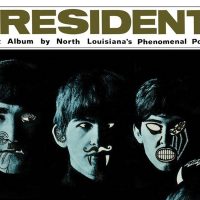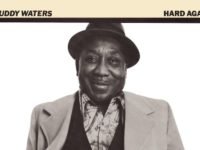Started as another in rock star Eric Clapton’s celebrated CPR efforts for the careers of the blues legends he loved most, this one was almost lost to the Atlantic vaults.
In the end, four different producers worked this thing at two different studios. Sessions were held in 1970, then again in 1972. Four different lineups perform, including one with both harpist Junior Wells and Clapton absent.
Louisiana-born Buddy Guy, the only constant, is a searing, almost savage presence on the guitar, tearing through the preconceived notions and old-school traditions perhaps too-reverent descendants like Clapton may have found comfort in.
And from the first: Guy and Wells are backed on the record’s opener, the chugging “Man of Many Words,” by a tough group that includes a trio of standouts who had just completed the mammoth rock classic Derek and the Dominos: Clapton (taking the first of several remarkable turns on bottleneck), bassist Carl Radle and drummer Jim Gordon. Guy schools them all with a daring, frenetic solo that doubles over this song over at its middle. Wells, the former Muddy Waters sideman, can’t help but howl in appreciation: “Let me tell you!”
Despite the oddly somber cover image, that partnership between Guy and Wells — forged in studios and chitlin’-circuit dance halls since the 1960s — could still find ways to delight. Even for the two of them. This thrilling sense of first-take immediacy grounds those initial moments in Miami, done without rehearsal and with minimal overdubbing.
Clapton doubles on acoustic to Guy’s electrifying power chords on “Bad, Bad Whiskey.” Buried deep is fellow Louisiana-legend Dr. John, found at the piano for “Many Words,” an updated redo of Wells’ signature hit “Messin’ with the Kid” and on “T-Bone Shuffle.” Wells’ version of Willie Mabon’s “I Don’t Know” is a fun-loving showcase, one that uses down-home style to one-up the jokier version later popularized by the Blues Brothers. But the very loose-limbed nature of the sessions meant just eight cuts emerged as complete takes deemed worthy of release by the label.
And, there they sat. For years. Until, finally, a staff producer at Atlantic decided to revive the project with two tracks from ’72 with the then-bluesy J. Geils Band but without Wells and Clapton — including “This Old Fool” and “Honeydripper,” the album-closing instrumental. They complete Play the Blues, in terms of the number of songs needed to release an album, but add little.
Guy lands blows that would level buildings in “This Old Fool,” but that backing group — just a few years away from finding belated pop superstardom with throwaway songs like “Centerfold” — simply can’t match his intensity. And Wells’ twinkling eye for the just-right aside is sorely missed. Go back to the call-and-response between Guy and Wells on the shifty, brilliant “Have Mercy Baby,” and it’s clear just what’s absent.
Now that doesn’t sink Play the Blues, so much as make the trip back to the beginning of this record all the more satisfying.
- How Deep Cuts on ‘Music From Big Pink’ Underscore the Band’s Triumph - July 31, 2023
- How ‘Islands’ Signaled the Sad End of the Band’s Five-Man Edition - March 15, 2022
- The Band’s ‘Christmas Must Be Tonight’ Remains an Unjustly Overlooked Holiday Classic - December 25, 2016




